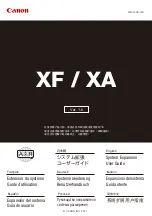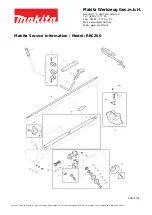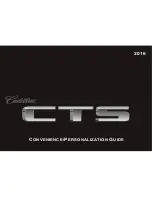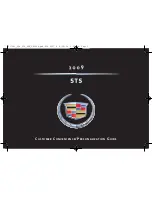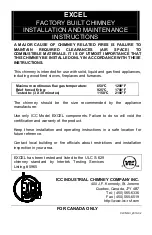
Unit Description
5-18
THERMO KING SR BASIC OPERATIONAL SEQUENCE ELECTRIC STANDBY MODE
The automatic start and Cycle Sentry operation requires all components to perform properly and in the correct sequence.
Understanding this sequence is important to understanding the operation of the unit
This description is to be used in conjunction with the Standby Mode block flow chart.
When the unit requires initial start-up in Standby mode, power is provided through the On/Off switch and On key. The
Microprocessor will review the inputs from the Setpoint, and the PSM [Phase Selection Module].
If in a Null mode then the microprocessor will re-start based on Setpoint, battery voltage and defrost input.
To allow the unit to enter Null the Setpoint must be satisfied, Battery must be fully charged and the unit not in defrost.
The below description of operation is a guide to understand the basic operational sequence of the automatic start sequence and
Cycle Sentry operation.
Note: Because Thermo King Microprocessors are programmable some functionality may change as a result of this
programming, therefore this is a guide to units that are set at factory default settings.
Operation
When the unit requires start up power the Microprocessor activates the components as follows.
1. The PSM receives an On signal from the Microprocessor
2. The PSM at this time must see 180 VAC on all three phases for a minimum of 2 to 4 seconds. A signal is then sent from the
PSM to the Microprocessor on the ER circuit.
3. If not an alarm code 91 will be generated indicating that the electric ready input was not initiated.
4. Once the ER signal is received by the Microprocessor the Pre-Heat Buzzer is energised to warn the operator the Electric motor
is about to start.
5. After the Buzzer time has elapsed and approximately 3 seconds before the K5 Diesel/Electric Relay is energised, the Run
Relay is energised. The Run relay energises and feeds power to the hold in coil of the Fuel Solenoid. The Run Relay also
makes ready other unit circuits for operation.
6. After proper Pre-Heat time, and approximately 3 seconds after the Run Relay energised, K5 Diesel/Electric Relay is
energised. The K5 Diesel/Electric Relay provides a 12vdc signal to the PSM for Motor Contactor power.
7. The PSM decides which Motor Contactor to energise (MC1 or MC2) based on the input sequence of L1, L2 and L3.
8. Once the Motor Contact is energised and the Electric Motor is running the Microprocessor checks the output signal from the
Alternator. The alternator provides a frequency (Hz) signal to the Microprocessor on the W wire. This signal allows the
Microprocessor to determine that the electric motor is running.
9. Approximately 3 seconds after the signal is received from the Alternator on the W wire the Buzzer is de-energised.
The Electric Motor remains running. If the unit is in Cycle Sentry mode it will continue to run until all of the following has
occurred.
1. Box temperature is satisfied
2. Unit is not in defrost
3. The battery is above the setting of CSBV (Cycle Sentry Battery Voltage) and the charge rate is at the CSA (Cycle Sentry
Amps) setting.
The unit will remain in a Cycle Sentry Null mode until:
1. The box temperature moves out of range of Setpoint.
2. A timed or manual defrost is initiated
3. The battery voltage drops below the setting of the CSBV
Summary of Contents for SLXi Spectrum
Page 17: ...Safety Precautions 2 5 Warning Decals...
Page 18: ...Safety Precautions 2 6 Warning Decals Information Decals...
Page 74: ...Unit Description 5 30...
Page 128: ...Controller Operation 7 28...
Page 156: ...Electrical Maintenance 8 28...
Page 234: ...Refrigeration Maintenance 10 22...
Page 309: ...13 Mechanical Diagnosis TK 482 TK 486 and TK 486V Engines 13 2...
Page 316: ...Mechanical Diagnosis 13 8...
Page 322: ...Refrigeration System Diagnosis 14 6...
Page 332: ...Single Temperature Refrigeration System Diagrams 15 10...
Page 339: ...Multi Temperature Refrigeration System Diagrams 16 7...
Page 340: ...Multi Temperature Refrigeration System Diagrams 16 8...































